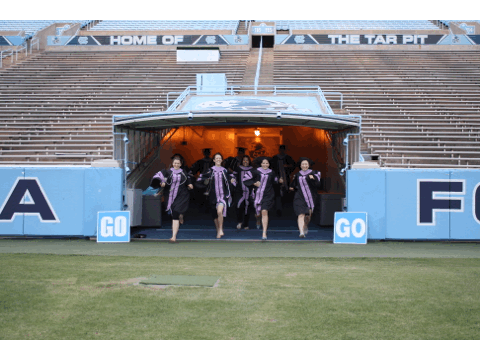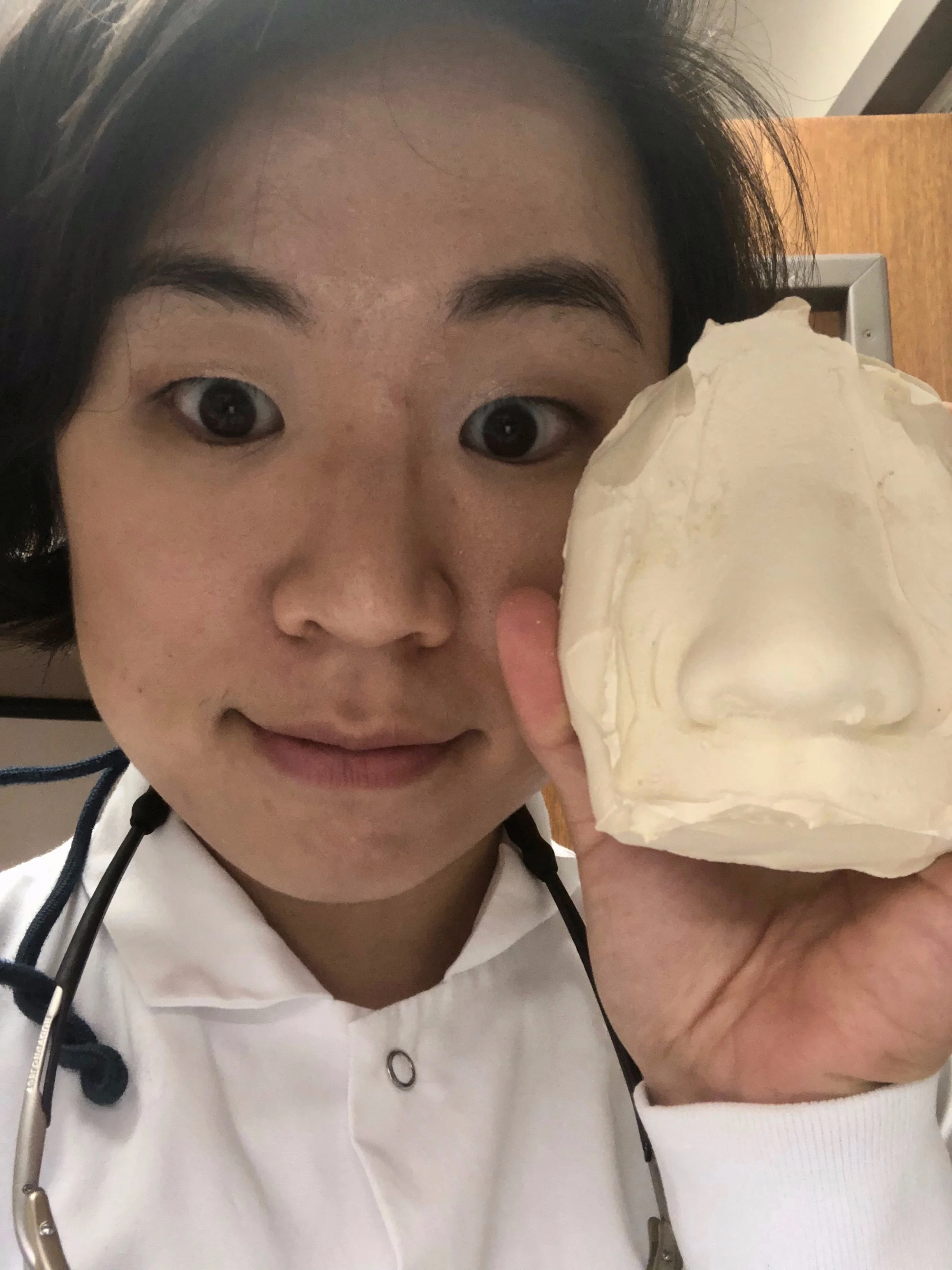a maxillofacial prosthodontist, educator, lifelong learner
& a 27th grade Graduate
and a daughter, sister, niece, cousin, wife, friend, (sometimes) runner, (always) food lover

& a 27th grade Graduate
and a daughter, sister, niece, cousin, wife, friend, (sometimes) runner, (always) food lover

the Old Well at UNC-Chapel Hill
Southern at heart
I call North Carolina my home, having grown up and lived there during my formative years and the majority of my professional development.

in traditional Korean garb (han-bok)
시작이 반이다
“Starting is half the task”, a Korean proverb
Being a second-generation Korean-American and marrying into a Greek-Australian family, I enjoy diversity in languages, cultures, and experiences (especially food!)
I’ve had a long history with dentistry. There was never a time when I did not have oral healthcare.
because of their own dental experiences that were namely defined by lack of access to care. In their own lives, they dreaded going to the dentist because they had poor oral health. Each time they went to the dentist, there was another problem that required treatment that was extensive and uncomfortable. With my upbringing, my parents made oral healthcare a priority for me so that I could avoid the experiences that they had.
Never having experienced caries (i.e. cavities), I learned the importance of dentistry in quality of life and also the immense differences in life experiences when healthy.

the Graduation Run

I met my first maxillofacial patient while rotating at another institution between my 3rd and 4th years of pre-doctoral dental education. Working with these patients was profound as I had not encountered patients with such extensive oral disabilities. I was amazed to realize that dentistry encompassed the care of this special population.
It was after dental school, when I was completing my General Practice Residency, when I began to care for these patients. Although treatment was interesting and fulfilling, I was most inspired by my interactions with these maxillofacial patients. In spite of their significant challenges, these individuals were often grateful for even the smallest difference that I could make in their care.
One experience, however, stays with me till this day. An oral cancer survivor gave me a reality check. She had been struggling with her oral prosthesis and continued to suffer from the side effects of radiation therapy to the oral cavity. She said that she had not realized the amount of suffering and hardships that she would have to go through with treatments to be alive, and still at the end, not be able to properly speak, eat, or smile. She stated, in no uncertain terms, that had she known, she would never have gone through care.
To have come so far and yet regret her choice to survive was shocking, but also understandable. With the rareness of oral cavity cancers, finding providers and centers that have subspecialty training and experiences to provide the needed comprehensive and multidisciplinary care is difficult. Patients like her not only undergo the challenge of cancer, but then have to live with the life-changing and function-compromising consequences from treatment it.
Even though I could help as their oral healthcare provider, I learned that I could make a difference by being their advocate in care and well-being before, during, and after cancer. And this is true for many others who also need care - from those born with congenital defects to those who have experienced trauma.
Thus started my career in maxillofacial prosthodontics. Or, in actual sequential order, thus started my career in prosthodontics residency followed by maxillofacial prosthetics fellowship training. And here I am.